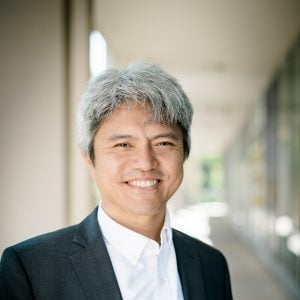
Dr. Chee-Wooi Ten (ECE/ICC-CPS) is a co-principal investigator of a project that has received a $34,050 research and development grant from the Sloan Foundation, through Arizona State University. The project will develop a Power Systems Engineering Research Center (PSERC) course module focused on Grid Security. The 13-month project is titled, “Power Systems Transformation Summer School.”
For the course module, Ten will develop curriculum material, lecture notes, and exercises. He will record the course module for inclusion in the online PSERC network, and present the course in person at the summer 2022 PSERC Transformation Summer School. Ten will also assist in identifying future strategic outreach pursuits to extend the reach of the course. Ten is the Michigan Tech site director for PSERC.
Project Overview: Module 6, Grid Security
In operational planning of evaluating a grid security, a component outage is expected. A potential cascading outage can be incurred by the initial disturbance, which is losing a component or circuit. Such events are often computationally feasible in anticipating the potential issues based on a combinatorial study. We often refer this as N-1 contingency where N is the total number of components in a given power system and the -1 is hypothesized outage of the circuit.
The first half of the day-long course will go through the fundamental exploration of the contingency analysis and the hypothetical “what-if” assumptions on prescreening methods using linear sensitivity factors, i.e., power transfer distribution factors (PTDFs) and line outage distribution factors (LODFs) without going through a complete evaluation of grid using power flow module. The second half of the course will be devoted to the emerging subject by extending the status quote to cyber-physical system (CPS) security issues that are related to S-k substation contingency, which is intrusions to IP-based substations leading to hypothesized switching attacks.
About PSERC
The Power Systems Engineering Research Center (PSERC), which currently includes 13 universities and 36 industries, draws on researchers’ ingenuity to creatively address key challenges in creating a modern electric energy infrastructure. The multidisciplinary expertise of PSERC’s researchers includes power systems, applied mathematics, complex systems, computing, control theory, power electronics, operations research, non-linear systems, economics, industrial organization, and public policy. PSERC partners with private and public organizations that provide integrated energy services, transmission and distribution services, power system planning, control and oversight, market management services, and public policy development.
PSERC provides 1) efficient access to experienced university researchers in an array of relevant disciplines and geographically located across the U.S.; 2) leading-edge research in cost-effective projects jointly developed by industry leaders and university experts; and 3) high-quality education for future power engineers.